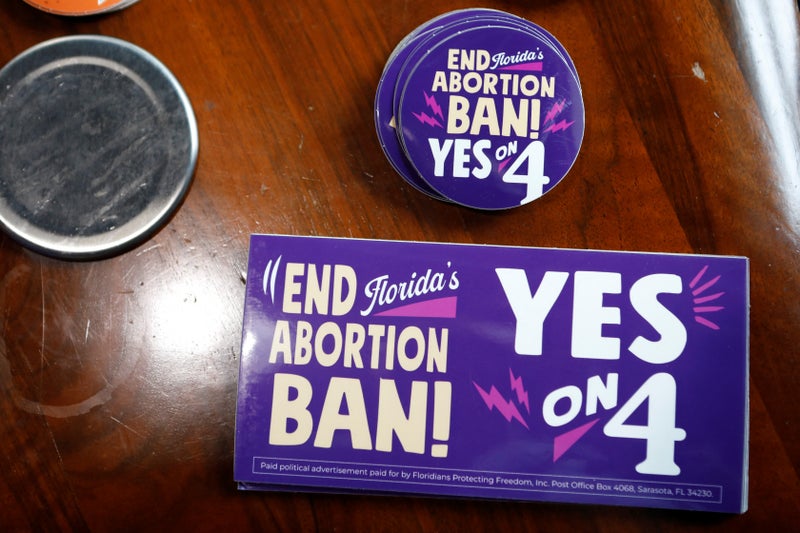Fertility rates also up in states with bans and restrictions. Increases in infant mortality have been found in U.S. states that enacted abortion bans or severe restrictions after the Supreme Court overturned the landmark ruling that guaranteed a right to the procedure, U.S. researchers said on Thursday. Across the 14 states where abortions were banned or prohibited after 6 weeks of pregnancy by laws that took effect between September 2021 and August 2022, there have been an estimated 478 infant deaths that would not have occurred if the restrictions were not in place, the researchers said.
![[Former US president Donald Trump's supporters protest during the launch of the Harris-Walz 'The Fighting for Reproductive Freedom' Bus Tour, in Boynton Beach, Florida, USA, 03 September 2024]](https://static.independent.co.uk/2024/09/09/17/11582470.jpg)
“Restrictive abortion policies may be reversing decades of progress in reducing infant deaths in the U.S.,” study co-leader Alison Gemmill of Johns Hopkins Bloomberg School of Public Health said in a statement. After the bans took effect, infant mortality rates were 6.26 per 1,000 live births, compared with an expected rate of 5.93 per 1,000, a relative increase of 5.60%. Infant deaths from congenital anomalies rose from an expected 1.24 per 1,000 live births to 1.37 per 1,000, a relative increase of 10.87%.
Mortality from other causes rose to 4.89 per 1,000 from an expected 4.69, a 4.23% increase. Among non-Hispanic Black infants, there were 11.81 deaths per 1,000 live births after the bans, versus an expected rate of 10.66 per 1,000, an increase of nearly 11%, the researchers said. The increase in infant mortality due to congenital malformations is consistent with reports of women being denied abortions for nonviable pregnancies, but “the increase... due to non-congenital causes is less straightforward,” the researchers said.
Abortion bans may be disproportionately impacting already disadvantaged populations who are at higher risk of infant mortality and delays in receiving timely medical care, the researchers said. This suggests that legal exceptions based solely on fetal anomalies “will not fully offset the negative effects of abortion bans on infant health,” they added. Following adoption of the bans, the number of births per 1,000 reproductive-aged females in affected states rose 1.70%, equivalent to 22,180 births that would not have happened were the bans not in place, they found.





























